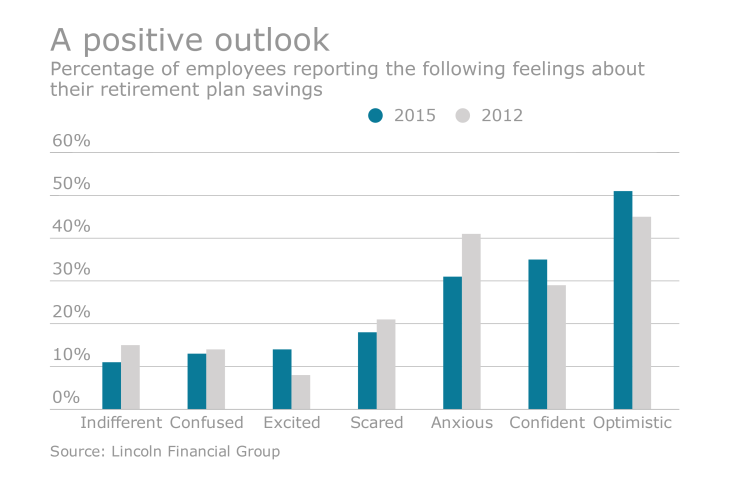Mark Twain once wrote that “A lie can travel halfway around the world while the truth is still putting on its shoes.” The same is true of myths about saving for retirement, and retirement services professionals should take it to heart as we begin 2017.
Many plan participants hold misconceptions about saving for retirement. Plan sponsors and record-keepers regularly demonstrate their commitment to fiduciary responsibility by actively working to dispel these myths, which can potentially prevent participants from achieving their desired retirement outcomes.

One myth is that employees are on their own when it comes to transitioning retirement savings after changing jobs.
See also:
This is patently false, but too many participants assume they have no recourse if they wish to move their retirement savings forward to their new-employer plan. However, plan-to-plan portability is a complex and time-consuming process if participants undertake it on their own.
Some sponsors and record-keepers offer roll-in assistance and cover all or part of the cost. In fact, a 2015 Boston Research Technologies study of mobile workforce behaviors found that 62% of participants who had completed a roll-in did so with outside help.
The study found that participants expect the roll-in process to require a great deal of personal time, and they highly value those hours. Given the time and expense of completing a roll-in, some participants feel it is far easier to leave their savings accounts behind in their prior-employer plans — or, even worse, to prematurely cash out — at the point of a job change.
Meanwhile, a third of American workers have stranded a 401(k) account in a prior-employer plan at least once during their working lives, according to the study.
See also:
It’s not as though participants don’t understand the value of consolidating their retirement savings accounts. The Boston Research Technologies study found that 73% of millennials, 66% of Generation Xers and 51% of baby boomers would gladly utilize a roll-in service provided by their employer — and 91% of millennials, 89% of Gen Xers and 67% of baby boomers would leverage such a service to roll their IRA savings into their current-plan 401(k) accounts if their employer paid for it.
If more participants knew to ask for roll-in assistance when first enrolling in their current-employer plans, then it’s probable that cash-out leakage would be reduced, as would the huge number of small, stranded accounts that impose unnecessary administration and recordkeeping costs on plan sponsors and record-keepers. Sponsors and record-keepers should actively communicate the roll-in services they do and don’t offer to new participants, and let them know that they can also hire a third-party provider of roll-in services for a flat fee.
Another myth employees should know about is that IRAs are not better than 401(k) plans because they’re free and have unlimited investment options.
IRAs come with investment expenses just like 401(k)s — but IRA accountholders are often invested in retail funds, which charge higher fees than their institutionally priced brethren predominantly available in 401(k) plans.
See also:
The funds available in 401(k) plans have been thoroughly vetted by investment professionals with the plan sponsor and/or with the plan’s record-keeper — one of the most valuable services that emerges from their fiduciary responsibilities — and this due diligence and investment selection process is a strong counter to the offer of “limitless” investment options available in many IRAs.
This is another benefit of ongoing, uninterrupted investment in a defined contribution plan that sponsors and record-keepers should communicate to participants. Make it a point this year to ask newly enrolled participants, “Why set up an IRA when you have a perfectly good 401(k) plan whose administrators have a fiduciary duty to act in your best interest?”
The Employee Benefit Research Institute estimates that, annually, more than 13 million Americans with retirement savings accounts change jobs, with more than 34% of those retirement savings plan participants cashing out their accounts in the process.
If sponsors and record-keepers make a conscious effort to debunk the above two retirement savings myths among their plan participants this year, more job changers will likely stay invested in defined contribution plans. If this happens, sponsors and record-keepers will not only be demonstrating adherence to their fiduciary duty, but they will also help improve outcomes for themselves and millions of hardworking Americans.





